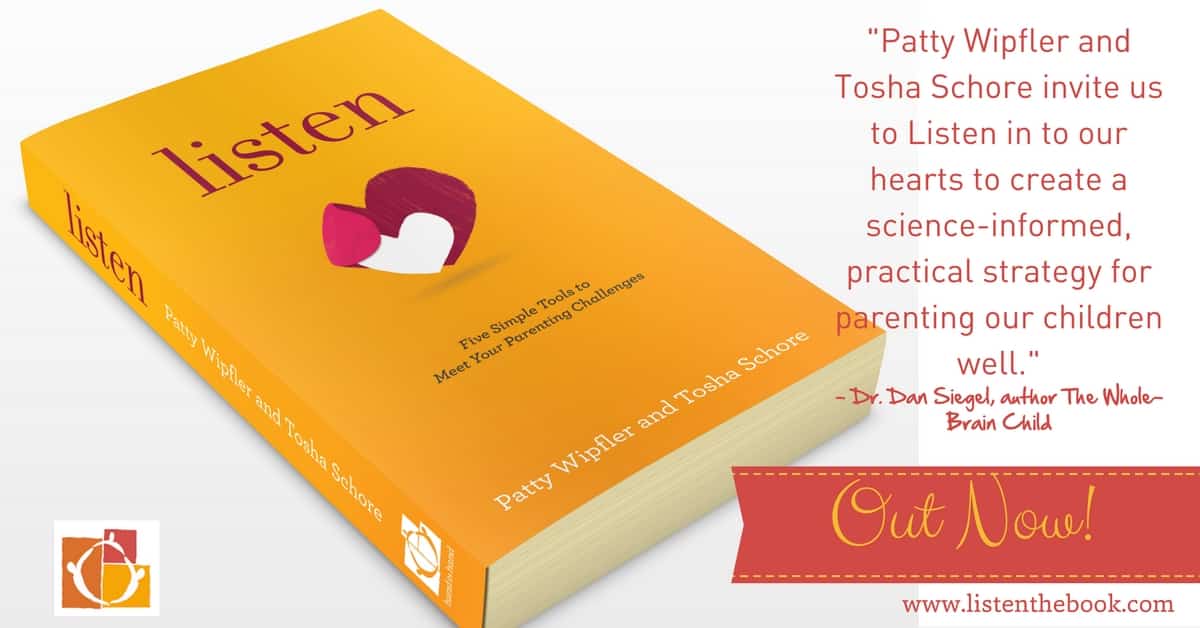 As parents, we devote our time to the care and well-being of others.
As parents, we devote our time to the care and well-being of others.
We hear a lot about self-care, about why it's important to take timeouts for ourselves, or about how being mindful and calm can help us in our parenting journey.
We want to be calm, to find patience, to reduce our parenting struggles, to take down our yelling, the problem is that goal can seem further away than getting our kids out each morning, fed and ready for school on time.
“Parents want to do well but often don't know what to do with their own upset,” says Sandra Flear, a Hand in Hand instructor.
But there is one simple to use tool that gives parents what they need to survive the struggle of parenting.
This tool is called a Listening Partnership.
Trace Your Triggers, Find More Calm
In listening partnerships, two parents exchange listening time. In this time they are free to focus on specific areas that trouble them – perhaps things that their children do which trigger anger or sadness or the challenging behaviors that their children are showing.
Parents often trace the sources of their triggers, many of which are buried deep in their own childhoods, and they can learn new ways to react. Listening partnerships are not an advice forum, instead, they provide much-needed space to get thoughts into the open, and work through issues without judgment.
Express yourself and everything that is annoying and upsetting right now
They are also places for parents to express their anger, confusion, sadness or upset. Tears are welcomed in listening partnerships, and so are tantrums.
Laughter and silliness are encouraged.
When you spend all day listening to your children, being listened to yourself can be amazingly freeing. Breakthroughs occur that help parents go on more calmly in their parenting. When sessions are over, you return to your family feeling lighter, and with a clearer head. More patient. More playful.
You can read how another Instructor Miranda Fairhall examined triggers that made her so angry when her daughter swore, and how she was able to really connect with her daughter after listening time: When Kids Words Hurt
Listening Partnerships are, as Sandra Flear says, “An essential parenting survival skill.”
Listening Partnerships: Getting Started
Listening Partnerships are easy to run. The simple guideline is to set the same amount of time to be listened to, and during the listening time session say very little. Instead, thoughts are focused on the well-being of the parent being listening to, and the faith that they will work through an issue.
You can find out How to Find a Listening Partner here.
Hand in Hand Instructor Kathy Gordon‘s gives the following list to parents in her Starter Classes. Most are just starting in their listening partnerships. It's worth keeping these handy to review before your meeting or call.
Guidelines for Good Listening Partnerships
Here is Kathy's cheatsheet on running Listening Partnerships well.
“Following this list creates a safe and healing environment for listeners,” says Kathy, “So that you can think well and be patient, calm and even playful during your listening time.”
1. Decide on the equal amount of time you will each take.
2. Start by talking about one thing that is going well.
3. One person shares, while the other person listens. The listener just listens, while thinking, “You are good. You will figure it out.”The listener's warmth, presence and good thoughts are enough.
You do not need to offer advice! You should not fix, or reflect back.
4. When the timer goes off, the listener asks the talker a detailed refresher question, such as: What are the designs of some of your socks? What’s in your junk drawer? What are the colors of the rainbow? This helps your partner to reconnect to his or her cortex, the thinking part of the brain to get their attention up and out so that they can listen to you.
5. Now switch. As you listen, simply think that your partner is good and they will figure it out. When the timer goes off, ask the person sharing a question so they can get their attention back up and out.
6. Avoid talking about what the other person has said. Do not refer to the conversation. What is said in one’s listening time is sacred, and belongs only to the person sharing.
7. If you can, set a time when you’ll meet again.
8. As much as you'd like to chit-chat or ask for parenting advice it can erode the safety of your time together. Simply end with something by mentioning something you are looking forward to, something you appreciate about yourself, or something you appreciate about your partner.
The overriding guidelines for a useful and nourishing listening partnership are to:
Listen with respect, attention and warmth.
Get this excellent primer from Hand in Hand's founder Patty Wipfler about how Listening Partnerships work, and how they help parents connect with their children and find renewed calm and patience: The One Basic Secret of Reducing Your Parenting Stress.
Check out all of Hand in Hand's classes for parents, early childhood educators and professionals here.
Save
Save

